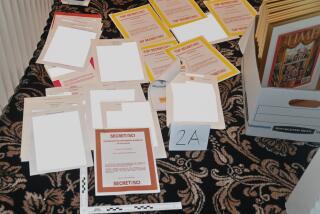TECHNOLOGY WATCH : Secrecy’s High Cost
- Share via
In 1989 Cliff Stoll published “The Cuckoo’s Egg,” a fascinating account of how he caught computer spies using his computer address to gain access to U.S. military databases. Since then, the number of networked computers across the world has grown, and computer masquerading has grown with it.
Just as the cuckoo uses another bird’s nest to raise its own young, the cyberspy uses another user’s computer identification to do his or her own business.
Although the federal government has swiftly taken countermeasures against new forms of this masquerade, such measures are both complex and costly.
Is there an alternative? Information scientist Niv Ahituv of the Claremont Graduate School thinks there must be. He foresees a bifurcation: for most data, less security and enhanced access at a price so low that paying would be easier than stealing; for a crucial but reduced segment of what is now considered private data, security by heavy-duty encryption.
“Society has two choices,” he writes. “Either it can keep up the exasperating and, especially, expensive game of cat-and-mouse, always striving to stay half a step ahead . . . or it can decide to be more selective about secrecy. This second option may mean changing some conventional wisdom, and that will take time, but once the transition is complete, all of those billions that have been wasted on security will be freed for constructive use.”
It all comes down, he says, to the old adage: If you can’t beat ‘em, join ‘em. And he may be right.






